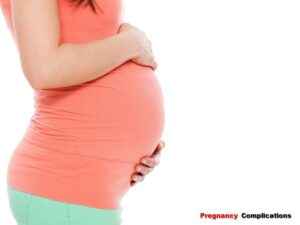Gynecological causes of abdominal pain: Discomfort or unpleasant sensations in the abdomen are referred to as abdominal pain. Stomach pain affects almost everyone at some point in their lives. A majority of reasons for stomach discomfort are not the cause for concern, and your specialist can diagnose and treat associated conditions quickly. Abdominal discomfort can, however, be an indication of a serious condition that necessitates medical treatment – especially in women. Therefore, it should never be considered as less severe especially if you are a woman.
Moreover, abdominal discomfort can be caused by a variety of factors ranging from a minor ache to severe cramps. For example, you could have indigestion, constipation, stomach discomfort, period-related pains, or other gynecological problems associated with abdominal discomfort if you are a female of reproductive age.
Symptoms
The signs and symptoms of stomach discomfort differ from one woman to the other. Some women endure moderate irritation, while others experience significant pain that makes managing daily chores difficult. Abdominal pain can be caused by a variety of factors in women, including:
- Heartburn
- Heart-related issues
- Gallbladder stones
- Gynecological problems
- Other stomach conditions
The pain in the lower abdomen can sometimes feel like pressure, tightness, or heaviness. While urinating or bowel motions, intercourse, or long periods of standing or sitting, lower abdominal or stomach pain can intensify.
Gynecological causes of abdominal pain
The most prevalent issues related to stomach discomfort in non-pregnant women are acute pelvic inflammatory illness and ovarian cyst problems. Endometriosis, chronic pelvic inflammatory disease, and fibroids are less severe causes of abdominal discomfort. Women with acute abdominal pain owing to gynecological illness may report to gynecologists who perform a pelvic ultrasound as the most appropriate examination for diagnosing potential gynecological disorders.
Here are some common gynecological causes of abdominal pain:
Menstruation
Pelvic discomfort, which is commonly characterized as cramps in the lower abdomen or pelvis, can also occur during menstruation. The severity of the discomfort can change month to month. Premenstrual syndrome (PMS) refers to pain that occurs before menstruation. Premenstrual dysphoric disorder (PMDD) is a condition that occurs when the discomfort is so intense that it hinders you from going about your normal activities. Additionally, mood swings, bloating, stress, insomnia, sore breasts, joint aches, headaches, and irritability are all common signs of PMDD and PMS. The symptoms usually go away after menstruation starts, but in most cases, they persist and disturb daily activities.
Ovarian Cyst
You may experience a dull or intense discomfort in your belly or pelvis if the cyst is large. Bloating or fullness in the lower abdomen; lower back pain that radiates to the thighs is also a possibility. An enlarging cyst may burst, causing sudden intense discomfort in the lower abdomen with fever and vomiting. Based on which ovary had the cyst, the pain could be experienced on that side of your lower abdomen.
Ovulation
The ovaries produce an egg along with additional fluid during ovulation. The ovum then makes its way into the uterus via the fallopian tube. The fluid expelled might travel throughout the pelvic area, causing irritation and discomfort. Based on the ovary from which the egg is discharged, the discomfort may be felt to that side and it may continue for a few minutes or hours and swap sides. You may have strong and sudden pain or a dull ache. This pain is only transient and does not necessitate any treatment.
Uterine Fibroids
Fibroids are uterine growths that are benign in nature. More than 70 percent of females in their reproductive years have this non-cancerous expansion. However, Uterine fibroids cause a variety of symptoms that vary depending on their size and location of growth. Many women may not show any signs or symptoms. Large fibroids cause pressure in the lower stomach or pelvis with a dull aching discomfort or a sensation of heaviness. Heavy menstrual bleeding, bleeding during sexual contact, leg pain, back pain, constipation, and urinary problems are all possible symptoms. Infertility can be caused by fibroids. Fibroids that have outgrown their blood supply and are dying can cause excruciating stomach pain(degenerated).
Endometriosis
Endometriosis can cause mild to severe, or devastating stomach cramps. During the menstrual cycle, this discomfort is often the most intense. It can also happen during intercourse, as well as during urine or bowel movements. Moreover, the pain is mostly in the pelvic area, but it can sometimes spread to the stomach. Headache, heavy bleeding, and bloating are some of the other signs associated with endometriosis.
Pelvic Inflammatory Disease (PID)
The infection or inflammation of the female reproductive organs is known as PID. It can harm the ovaries, fallopian tubes, uterus, or all three at the same time. PID is frequently a side effect of a sexually transmitted infection (STI), such as chlamydia or gonorrhoea. You may experience pain in your lower stomach, pelvis, and lower back if you have this illness. Heavy vaginal discharge with a pungent smell, abnormal uterine bleeding, discomfort or bleeding during intimacy, vomiting, nausea, fever, and uncomfortable feeling or difficult urination are some of the other signs associated with this condition.
Ovarian Cancer
The pain and discomfort caused by ovarian cancer are often indistinct, and you may mistake it for bloating or constipation. The discomfort and pressure in your lower stomach, on the other hand, will not go away. Furthermore, your stomach may bloat or you may feel as if it has enlarged or there is pressure. You may experience a strong, frequent urge to pass urine, as well as a rapid feeling of fullness upon eating. Constipation and loss of weight are the other potential warning signs and symptoms associated with ovarian cancer.
Bottom Line
Consistent stomach pain is something you should never overlook. It could be a symptom of anything mild or serious, but it’s always better to be prepared than to repent later. It’s better that you see a gynecologist for a screening. Early detection of any moderate to severe gynaecological problem ensures prompt treatment and management of the condition. It is therefore essential for almost all underlying medical issues that cause abdominal discomfort to get properly evaluated by a specialist. This may help gynecologists in making an accurate diagnosis and formulating a successful treatment plan. If you have any concerns regarding the gynecological causes of abdominal pain, comment, call or consult.





